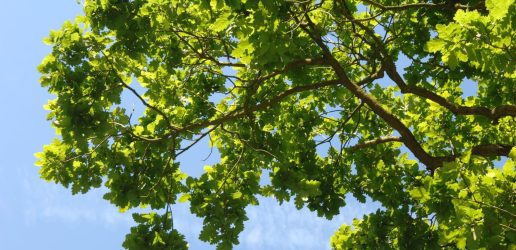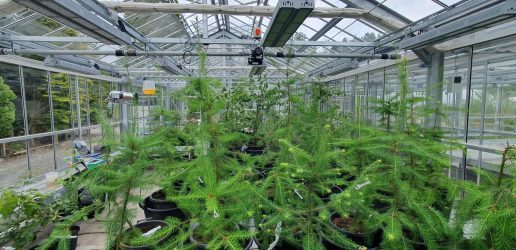Forest Research has published a new report which summarises the current evidence on how woodland management and creation affects biodiversity, ecosystem resilience and key environmental benefits.
Well-managed woodlands of any type can enhance biodiversity and support many protected species. Additionally, woodlands provide important benefits to people through regulating and providing ecosystem services such as timber and wood products, climate change mitigation, water quality improvements and recreation.
This new review focuses on the benefits to woodland-associated biodiversity and highlights where actions can be beneficial to species outside woodlands.
Author of the report, Joe Beesley, Spatial Scientist at Forest Research, said: “This report has pulled together a wide range of evidence on how the management, creation and configuration of woodlands within a landscape affect biodiversity, ecosystem resilience and key environmental benefits, including carbon sequestration, flood mitigation and improved water quality.
“Across Great Britain, woodlands are being planted and managed to deliver multiple objectives at any one time. By understanding the potential synergies and trade-offs between these objectives when it comes to biodiversity and wider environmental benefits, planners and forest managers can make informed decisions about the best approach to woodland management or creation at their site.”

Findings are presented in two key sections, ‘Managing existing woodland’ and ‘Creating new woodland’, each with a table of summary statements that describe the strength and agreement of the evidence. The report also looks at the trade-offs between different management objectives, as well as highlighting some of the potential synergies in woodland management and creation to achieve multiple environmental benefits.
The roles of trees outside woodlands and other wooded habitats, such as wood pasture, are not specifically covered in this review. Evidence has been gathered from technical reports, guidance documents and scientific literature, including review articles and meta-analyses.
The report was funded by the Forestry Commission.
Recent News
View All news
Woodland managers are invited to take part in a new project to protect the nation’s oaks
Join a webinar and in-person workshop to learn about monitoring and protecting oak trees.

Webinar: Observing and understanding oak health across the UK
An online webinar launching a new, practical oak-health monitoring system for woodland managers and volunteers across the UK.

Webinar: Understanding drought risk for UK woodland creation and forestry
Hear about new research on how rising drought risk is reshaping UK forestry and the tools being developed to support climate‑smart woodland creation.

Woodland managers are invited to take part in a new project to protect the nation’s oaks
Join a webinar and in-person workshop to learn about monitoring and protecting oak trees.

Webinar: Observing and understanding oak health across the UK
An online webinar launching a new, practical oak-health monitoring system for woodland managers and volunteers across the UK.

Webinar: Understanding drought risk for UK woodland creation and forestry
Hear about new research on how rising drought risk is reshaping UK forestry and the tools being developed to support climate‑smart woodland creation.
